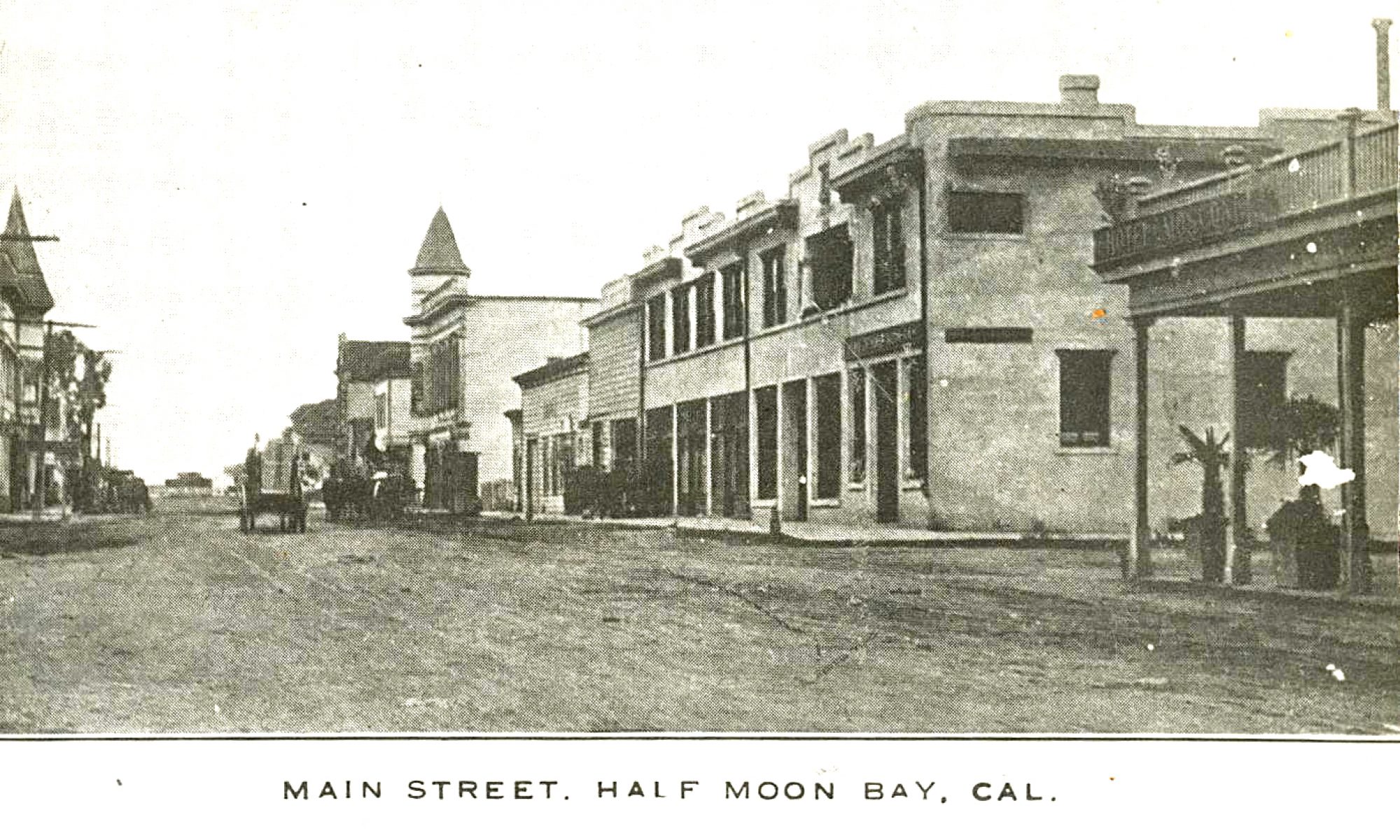A brief-lived port at Pigeon Point terminated in a gun duel and bloodshed sharp and ugly as western literature can provide.
Power on land was generally horses. The plowing, hauling, stages and buggies all needed them. Hay growing turned the fields sweet with harvest.
In logging, however, it was the powerful and calm ox that was used. He could pull and he could not be easily upset by the crash of trees and the vicissitudes of timber cutting. These beasts weighed a ton apiece, and though gentle, were terrible to behold.
Portuguese, mostly from the Azores, came early. Some were fishermen, some whalers. At Beluta’s Beach and at the Old Landing they dragged their many-oared boats ashore and relaunched them at the cry “Thar she blows!”
Farming was the mainstay of these gentle people. They were flower lovers and no home had the awful desolation of many midwest houses of that period. Instead they were embowered in over-running roses, nasturium, geranium and fuchsia. In the fields they planted the horse bean and the pea.
The harvests went on in the wet fogs of summer. If the palaces of the eastern hills had much of the Renaissance and the baroque about them, these harvesters, standing or kneeling in wet, glistening oilskins, recreated the tableau of Millet’s “Angelus”. This was a humble land and a gentle folk.
….to be continued…

